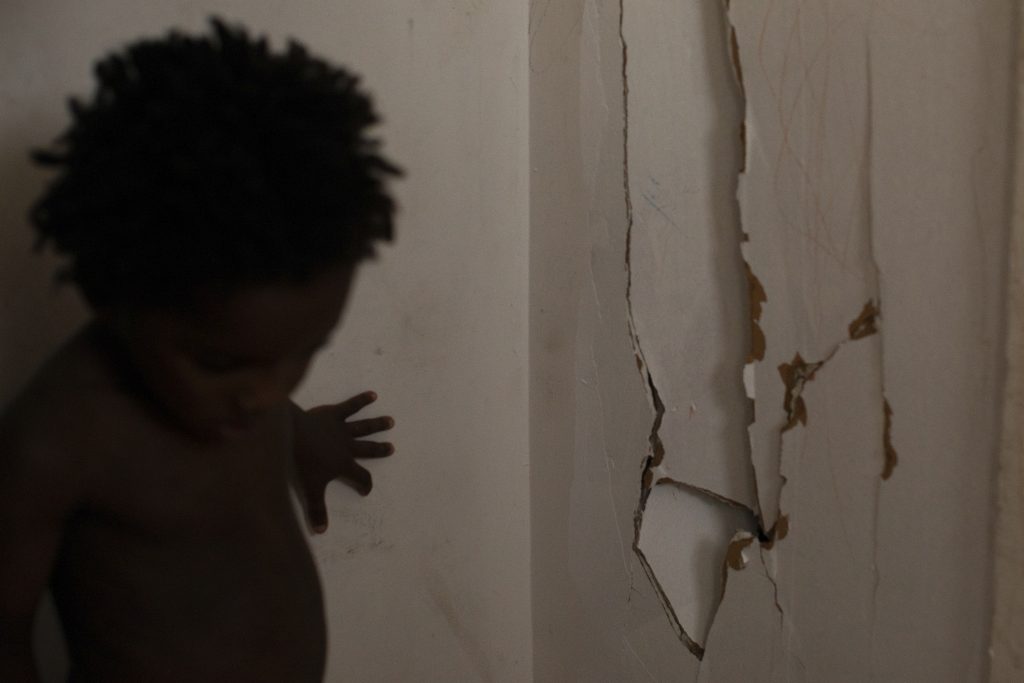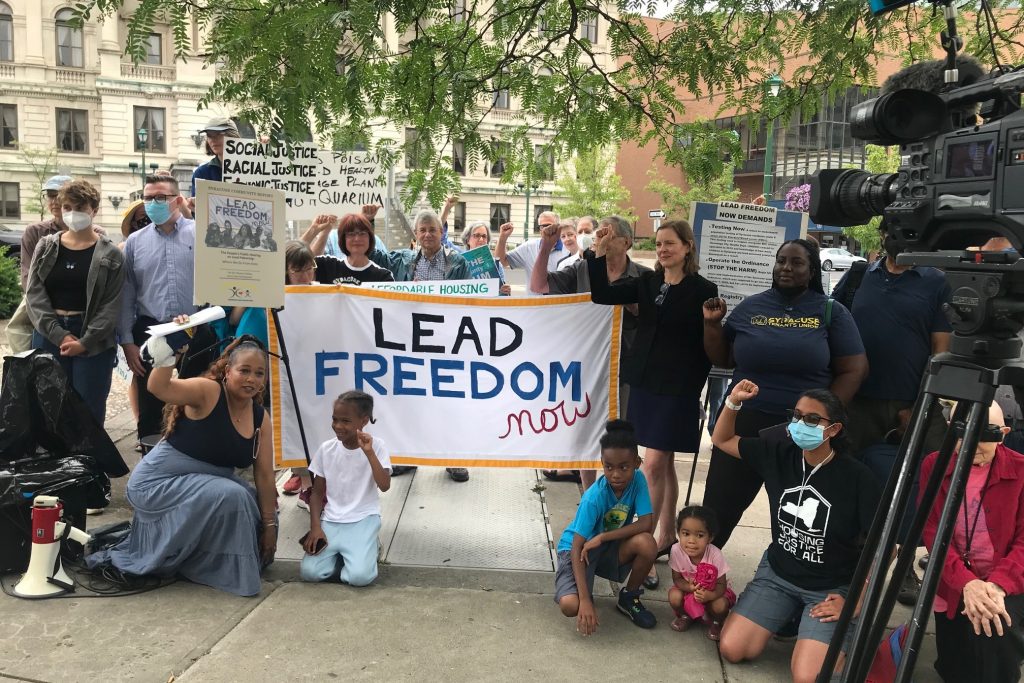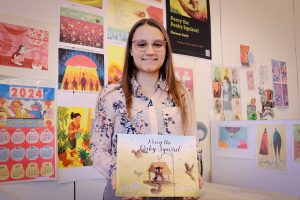Lead testing for Onondaga County children is on the decline
Lead testing for Onondaga County children is on the decline

Sometimes data can be misleading.
Children in Onondaga County are getting tested less often for lead poisoning, spiking concerns for both the medical community and the Syracuse community. The non-profit Central New York Community Foundation has initiated a community project to come up with innovative ideas to solve this crisis.
Twelve percent fewer children in Onondaga County were tested for lead poisoning in 2021 than the previous year, according to the county’s lead poisoning prevention data. However, the number of children testing positive rose by 40 children from 2020 to 2021.
Dr. Travis Hobart, the medical director of the Upstate University Hospital Lead Poisoning Resource Center, said fewer children are being tested, but the percentage of lead poisoned children has increased.
“So, we don’t know for sure what that is, whether there’s an actual increase in the number of kids exposed. But we know that it looks that way and that worries us,” Dr. Hobart said.
Lead poisoning in children is even more prevalent in the city of Syracuse. In 2021, 10.5% of tested children had elevated levels of lead in their blood. This is more than double the percentage in the county.
“That’s really a tragedy. Those kids in those families, it really is. It’s really not good for their development and for their brains,” he said.
Although New York state law requires doctors to test all children between the ages of one and two for lead poisoning, that doesn’t always happen, especially during a pandemic. Even now, there are many barriers to getting all children tested.
The pandemic overwhelmed doctors’ offices and people feared contracting Covid-19 from going to the doctor, so some children may have not gotten tested, according to Dr. Hobart.
Also during the pandemic, the Magellan Diagnostics company, which distributes Lead Poisoning Care II Machines to doctors’ offices for testing, faced a problem with production. Offices either couldn’t order these machines or couldn’t run the tests because the test kits needed to use the machine were on backorder.
“[Doctors] were saying go to the lab and get tested, and so more people fell through the cracks,” Dr. Hobart said.
Outside of the pandemic, access to healthcare and other barriers impact people’s ability to get their children tested.
Some people can’t get tested for lead because they don’t have access to healthcare or don’t regularly visit their doctors. Some doctors don’t order the tests at the times they’re supposed to order, according to Dr. Hobart.

CNYCF’s LeadSafeCNY project focuses on community members and their ideas to break the barriers to getting children tested for lead.
Syracuse residents attend monthly budgeting meetings where they brainstorm ideas on how to bright about more lead poisoning tests for children. Residents will then present their proposals and then participants vote on the top three plans. Then, residents vote again and the best proposal wins.
Nonprofits that want to carry out the winning proposal will then have the ability to apply for the $150,000 grant.
The initiative is termed a “participatory budgeting process,” and this is the first time the nonprofit has utilized it. CNYCF project officer Qiana Williams believes the process should be used on more issues.
“I feel like now it’s time to shift that power dynamic to a more shared power model and feel like we’ll be able to do a lot more and have more impact,” Williams said.
Williams knows people who have dealt with lead poisoning and its effects.
“It’s something that we can prevent, and we have the tools to prevent, but for some reason we’re still here and hearing some of the devastating effects that it has had on some of these folks within the communities,” Williams said.
Its first of 10 meetings was held on September 13 at Cafe Sankofa with about 50 people in attendance. Its second meeting was on October 4 at the Dunbar Center with about 55 people.
“It was a pretty powerful thing to watch. It was definitely democracy in action. I heard a lot of residents talking about their own personal experiences with lead, living in lead homes,” Williams said.
A county representative attends all the project meetings, and is there to set up meetings on the spot for children to test for lead poisoning.
The final meeting will be held on May 2, 2023 at Salt City Market’s community room.
Syracuse resident and founder of Doula 4 a Queen SeQuoia Kemp plans to attend a CNYCF budgeting meeting soon. She was drawn to the project because it brings together different people in the community focused on one goal.
“There’s this idea that the people who went to college or the people on LinkedIn often, that they know what’s better,” Kemp said. “Where this project just provides more opportunity for diversity.”
Kemp even has an idea brewing for a possible proposal for the project.
“Bringing the testing to the people is I feel like one of the best options,” Kemp said.
If you’re interested in participating in the CNYCF LeadSafeCNY project, register at https://cnycf.org/receive/strategic-initiatives/participatory-budgeting/.





